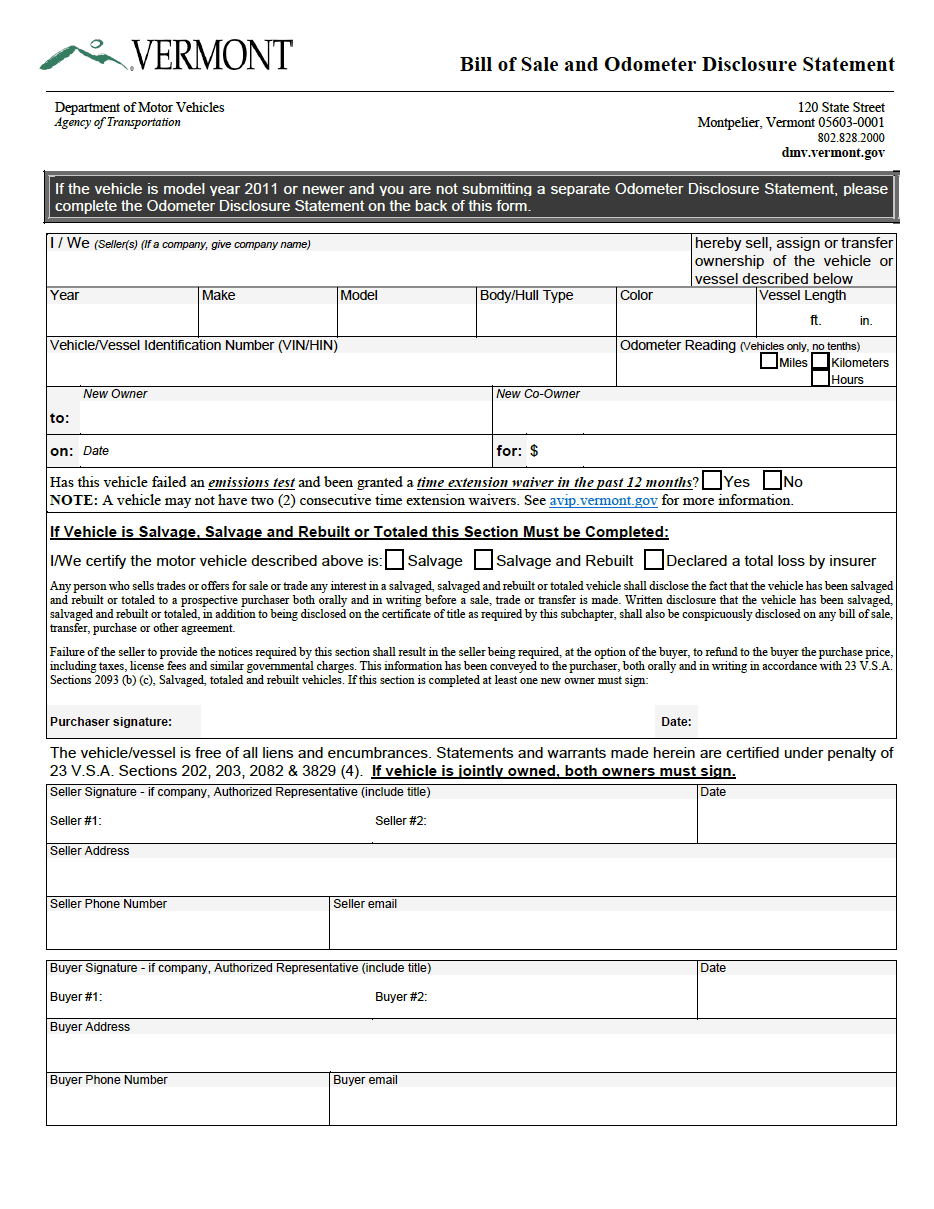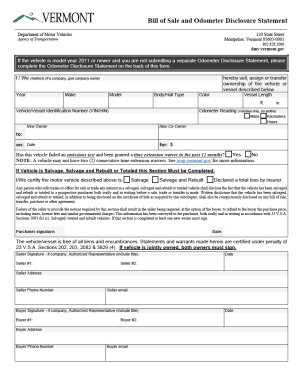Vermont Bill of Sale Forms (5)
A Vermont bill of sale form supplies confirmation of dealings between a titleholder (or seller) and a client (or buyer). The document provides a description of the item and the personal details of both parties. It also proves that a buyer righteously attained an item. If any litigation or dispute happens after the transaction, either person can use the completed and signed bill of sale to support their argument.
Summary
|
Types (5)
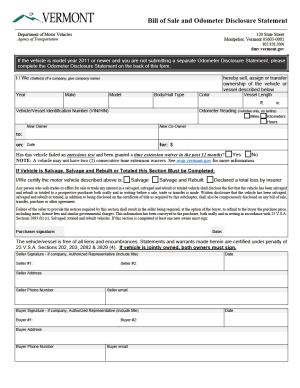 Boat Bill of Sale – A form used for handling the reassignment of vessel ownership.
Boat Bill of Sale – A form used for handling the reassignment of vessel ownership.
Download: PDF
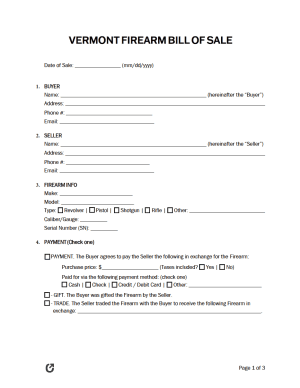 Firearm Bill of Sale – Converts the buyer into the new owner of a handgun, shotgun, or rifle.
Firearm Bill of Sale – Converts the buyer into the new owner of a handgun, shotgun, or rifle.
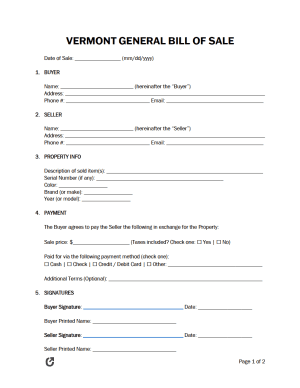 General Bill of Sale – Serves as a transference of generic personal property.
General Bill of Sale – Serves as a transference of generic personal property.
Download: PDF |
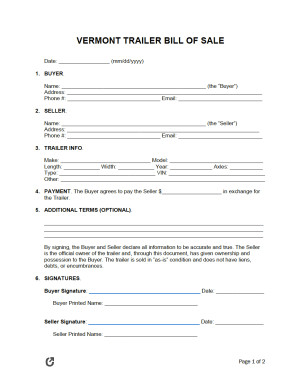 Trailer Bill of Sale – Entrusts a buyer to compensate the seller for a trailer, and in turn, the seller must hand over the property in an agreed-upon manner.
Trailer Bill of Sale – Entrusts a buyer to compensate the seller for a trailer, and in turn, the seller must hand over the property in an agreed-upon manner.
Signing Requirements
| Bill of Sale Type | Buyer Signature | Seller Signature | Notarization |
| Boat | Required | Required | Not required |
| Firearm | Required | Required | Not required |
| General (others) | Required | Required | Not required |
| Motor Vehicle | Required | Required | Not required |
| Trailer | Required | Required | Not required |
What is a Vermont Bill of Sale?
A Vermont bill of sale encloses details about the payment and transfer of a physical possession from a seller to a buyer. It makes it possible for both parties to connect after the sale and provides each person with written proof of the sale.
The form also gives state or government offices, such as the Department of Motor Vehicles (DMV), verification that property handover occurred. A new owner might also need the document for registration or insurance purposes, in addition to proving rights.
Once signed, the seller relinquishes all rights and responsibilities for the item. At that time, the buyer becomes the legal owner of the property. As soon as the ownership changes, the purchaser must follow state laws and regulations concerning the property.
In other words, they must research local laws and ensure the item adheres to all state standards. The owner may have to obtain insurance and registration or perform necessary repairs to make it usable. Before selling the object, the merchant must forewarn the buyer of any known issues or restorations needed.
Registration Forms: Boats
Boat registrations must occur at a Vermont DMV location.
|
Registration Forms: Firearms
Vermont does not register guns or issue licenses for any purpose. However, private firearm sellers must perform a background check on potential buyers to ensure they do not have a criminal history or mental health concerns.
Registration Forms: Vehicles
Residents must make an appointment with a DMV office to file the necessary forms.
|
Additional (Optional) Documents
- Vermont Motor Vehicle Power of Attorney – For financed vehicles or to allow another person (not the owner) to handle DMV matters.
Registration Forms: Trailers
Trailer registration must occur through the DMV.
|
Additional (Optional) Documents
- Manufacturer’s Statement of Origin (MSO) – For new trailers only.
